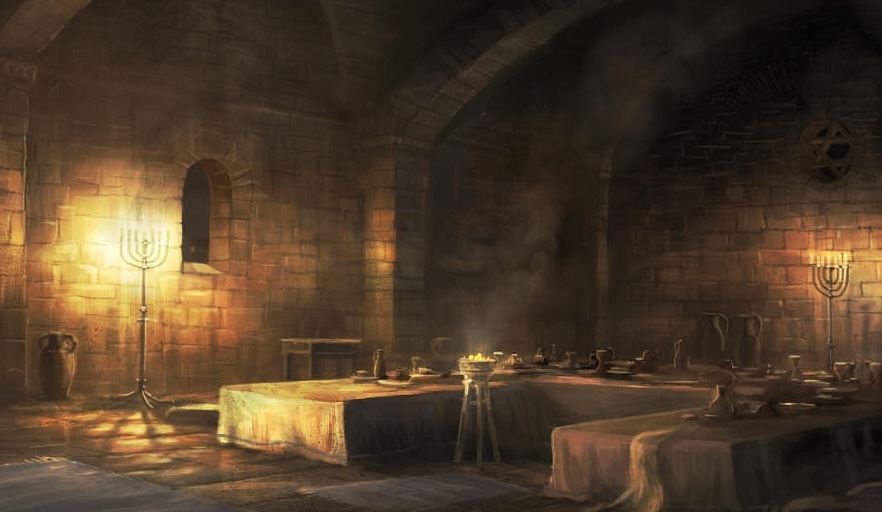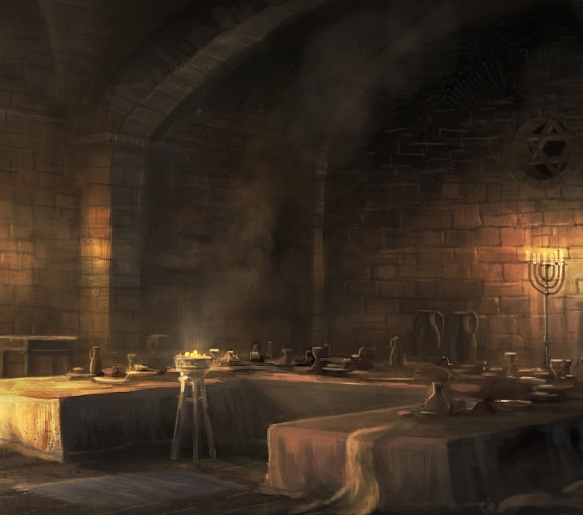
The editorial from the T4CG Newsletter, Pentecost 2024. To view full version click here
When the day of Pentecost came, they were all together in one place.
Acts 2 v1
Dear Friends
Welcome to the Pentecost edition of the T4CG Newsletter.
A General Election is a time to consider seriously the condition of our country. One way to start might be to focus on policy, but this can miss what’s really going on: the policy agenda is often driven by a political class disconnected from the country. Another way is to approach the question from the old political categories of left and right, but these can be misleading. And both approaches omit the transcendent. A better way for Christians is an approach anchored in God’s reality. We might imagine doing this somewhere like an “upper room”.
An upper room brings to mind a rarely used space at the top of a house, or even a practice of solitary prayer. But in first-century Holy Land the upper room was a place of communion. It was a place of fellowship and reunion, of encounter with scripture, of conversation and deliberation, a place to gather around a meal at the end of a long day. It’s said that even the poorest families kept such a room furnished so that guests could be welcomed.
It was this kind of upper room where Christ met with his disciples. It was in such a room that he washed their feet and ate the final Passover meal. It was here our Lord introduced the communal practice of the Eucharist and here that the apostles received the Holy Spirit. It was in the upper room that they discussed their engagement with the world, and from here they left and here they returned. Perhaps our distinctive approach to consider the state of our country might be best done somewhere like an upper room.
Some of us are fortunate to have such a place of fellowship. But for many, spiritual life is a solitary activity. Like going to the gym, in the dominant individualistic sea in which we swim, even the idea of prayer is privatised. But the early church was communal: at the heart of the home, it was grounded in the neighbourhood and infused with the Spirit of God.
Our discernment around what is going on in our country needs to be anchored in a similar way. The framework of Catholic Social Teaching can help: sometimes referred to as the theology of the Holy Spirit in practice, it infuses our deliberations with both the transcendent and the rootedness of real life. Attuned to God’s view, it trains us to join him in the neighbourhood, look for the flourishing of human beings, communities and relationships, and to call out any system which overcentralises power and undermines human agency.
Seeing our country through this portal reveals an operating system geared to benefit finance capital, generating human distress, failing to serve the interests of families and communities. A forty year neoliberal misadventure, perpetuated by parties of both the left and the right, has driven a low wage, high welfare economy. This model has enriched a few while 5.2 million people are on out of work benefits and 14 million are classified as living in poverty. This ideological mismanagement has broken large parts of our country.
And so we see the reason for the disconnect, and why people are so angry and alienated. A new government promising “stability” while not delivering fundamental reform is not serious about change, even if they use that language. The fundamentals will stay the same. There will be a continuity of collusion between government and big corporations to insulate financial interests from democracy. This is unacceptable from a Christian point of view.
A new government may well attempt mitigation by further centralising the welfare state, but the system inevitably will continue to generate pathologies that far exceed capacity. The churches will no doubt be invited to partner with social action and service-providing help. But the risks to the church are real: saviour complex, becoming a handmaid to the state, burnout and mission drift. Perhaps the greatest risk is that the church will inadvertently end up propping up an unjust system, alienating the very people it aims to help.
Instead of delivering services in a benefactor-recipient dynamic, Christians are called to build local relationships of reciprocity. The churches themselves are marginalised and in need of friendship: they must learn to receive as well as give. Together we can build a common good to resist the principalities and powers of the day. At a time when global instability is likely to get worse, emerging forms of local association are going to become more and more important. To ward off the darkness of this new time, we will need many upper rooms. We’ll need places of communion, and to become communities of place.
And so, in this edition I’m pleased to share resources addressing these themes. There’s a session given by me, Jenny Sinclair, last week in Bristol for Pentecost, and an essay by Fr Olek Stirrat explaining why Catholic Social Teaching helps us understand the unravelling better than the old left-right axis. There’s an essay by the late Frank Field on common good politics in honour of his memory. I’m also pleased to share some pre-election resources including our recent talks now available as podcasts, and a reprint of our common good bible study booklet.
Below you will also find links to the latest episodes from our Leaving Egypt podcast, where Al Roxburgh and I explore what it means to be God’s people in an age of unravelling, and the latest update from my colleague Jo Stow on our schools work. As always, you will find our latest signs of the times articles and recommended books too. Something for everyone I hope. Please feel free to forward to a friend. Please pray for us. Although we are more in demand than ever, our finances are precarious: please support us if you can.
Wishing you and yours every blessing in the spirit of Pentecost
Jenny Sinclair, and the Together for the Common Good team
This is just the editorial from the T4CG Newsletter, Pentecost 2024. To read the full content, click here
Header image: Rado Javor

